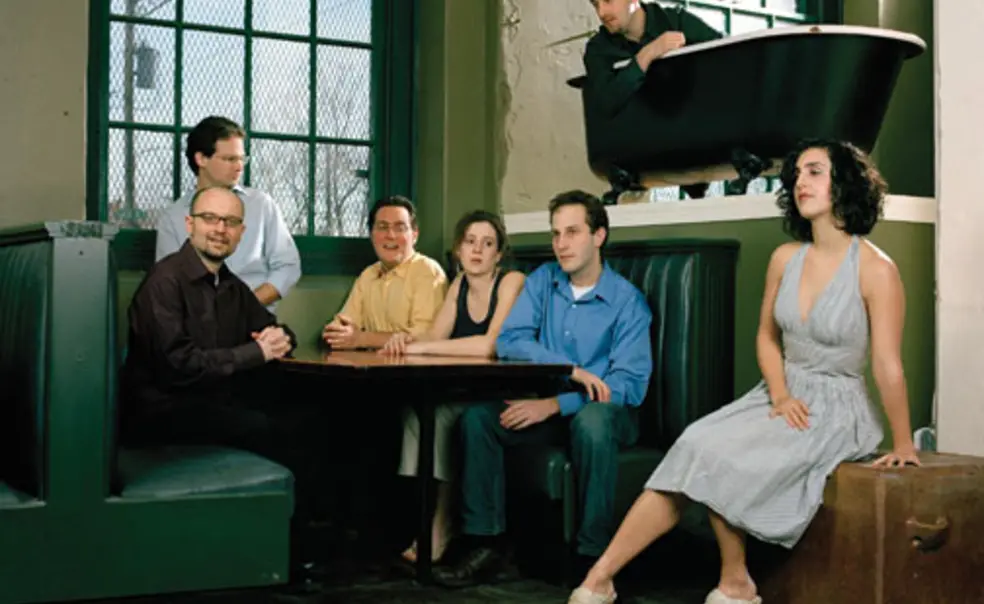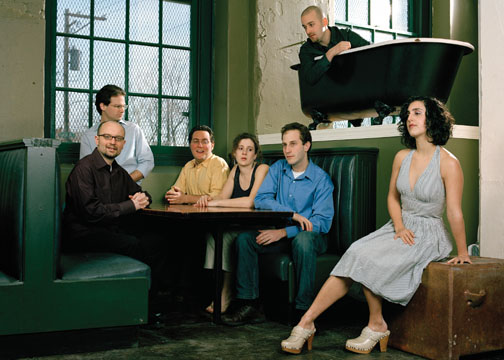Judd Greenstein GS, a composer and graduate student in Princeton’s music department, has started a record label. But don’t expect the kind of record-company executive portrayed in pop-star movies. Like everything about music in the digital age, record producers are changing, too, and Greenstein is part of that transformation.
“When people hear about record labels, they think of a man in suspenders sitting behind a desk with a big pile of money,” says Greenstein, 29. Not so with New Amsterdam Records, which Greenstein started in 2006 to promote his chamber group, NOW Ensemble, and other “indie classical” musicians and composers, including some from Princeton. Many artists on his site are classically trained, explains Greenstein, but they write and perform music “that speaks to an independent spirit and a modern listening tradition.” “Indie classical,” he says, can be influenced by anything from rock to technology, and is performed by instruments ranging from Norwegian fiddles to synthesizers.
The 19 artists featured on the site produce and record their own music; New Amsterdam sells and promotes it with Web and traditional advertising, a performance calendar, and record-launch parties. The label’s stable of artists includes Big Farm, the band of Princeton music department chairman and guitarist Steven Mackey; associate music professor Dan Trueman’s new group QQQ; and Newspeak, a group led by Princeton graduate student David T. Little. The site offers music downloads and sells CDs. Eighty percent of the proceeds go to artists and 20 percent to New Amsterdam until the artists have recovered their costs; then the split is 50-50.
New Amsterdam has sold thousands of songs, and critics have given it rave reviews. But Greenstein isn’t looking for a big payday; he recently filed for nonprofit status for the company. That’s not to say that commercial success couldn’t come with the label, says Trueman. “It’s just such a relief, and release, for musicians that [traditional] recording companies no longer have a stranglehold on the music that gets out there.”
Alicia Brooks Waltman is a writer in Hopewell, N.J.













No responses yet